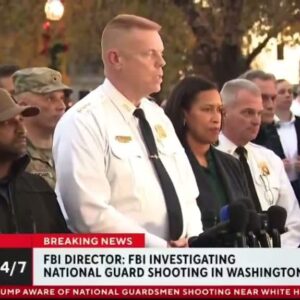President Donald Trump is set to sign an executive order on Monday aimed at ending cashless bail policies across the United States. The order will use federal funding as leverage, threatening to withhold financial assistance from jurisdictions that continue the practice. This move, expected to directly impact states like New York and cities like Washington, D.C., comes as part of Trump’s broader efforts to curb what he describes as lenient bail policies in certain regions. Attorney General Pam Bondi is reportedly preparing to provide a list of these jurisdictions to the president.
According to a memo from the White House, cashless bail policies allow individuals charged with crimes—some of whom are considered dangerous—to be released back into society without financial accountability. The memo argues that this practice poses a direct threat to public safety by enabling repeat offenders to commit further crimes. It specifically criticizes cases where violent offenders were freed without bail and later reoffended, costing public resources and putting law-abiding citizens at greater risk.
This executive order builds on Trump’s prior statements and actions against cashless bail. In August, Trump called on Congress to strengthen laws around pretrial detention, insisting that individuals should not be released without posting cash bail. The new directive is part of his broader “law and order” stance, fulfilling a campaign promise to crack down on liberal jurisdictions he believes are failing to prosecute criminals and instead releasing dangerous individuals without proper oversight.
The issue of cashless bail has become a contentious political debate in recent years. While Trump and others argue that these policies allow dangerous criminals to evade justice, advocates for bail reform contend that cash bail disproportionately affects low-income individuals. Several states, including Illinois and New Jersey, have passed bail reforms in recent years, shifting toward supervised pretrial release systems. These reforms are intended to reduce the financial burden on poor defendants who may not be able to pay bail. However, the majority of states still maintain some form of cash bond system for criminal defendants.
The push against cashless bail gained further traction earlier this month when Trump took steps to increase federal involvement in local law enforcement. In Washington, D.C., he mobilized the National Guard to assist in arrests and drug seizures, framing the move as part of a broader crackdown on crime. This executive order is a clear continuation of that strategy, aiming to force states and localities to align with federal priorities regarding criminal justice and public safety.



